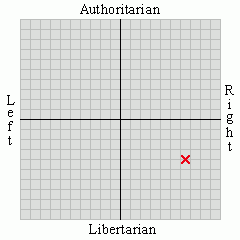Why I doubt the wisdom of consensus politics
Life is easy for anyone who has power or authority if no-one questions their use of that power. Life is extremely difficult if alongside power and authority there is effective opposition.
However without effective opposition then good decision making on difficult or controversial matters is almost impossible. Arrogance and ignorance dominate if the only voices heard are in agreement. That is why the term ‘yes-men’ is so pejorative. Any decision important enough to be taken by government is also important enough to hear and judge the reasoning for both (or indeed all) sides. To listen requires at least some level of doubt.
The Conservative Party seemed at one time to recognise this, and when Margaret Thatcher was seen not to be listening to those who disagreed with her she was removed. New Labour only ever cared about power, and silenced internal dissent ruthlessly while despising the opposition. For most of the time opposition was weak, and Labour took full advantage of that weakness. That is why so much New Labour legislation has had unintended consequences where they have been incompetent, or consequences that were not those the authors claimed to be striving for.
Barack Obama never had effective opposition before he entered the race for the White House. He was a Chicago politician in the Democrat Party, which not only has all-but-guaranteed office but a party machine of legendary ruthlessness and corruption. Even in his work as a law professor Obama did not have the usual academic opposition, for the simple reason that he appears not to have published anything. He lectured, but there was little to challenge what he taught.
During campaigning Obama did see opposition, but once he was the Democrat candidate the media shielded him from and effective scrutiny of his policy (or lack of it) and political history. When he did see any his response was petulant, aggressive and ignorant. Obama wanted to silence opposition, not listen to it and response, and he or his agents have often used his skin colour to do so, accusing anyone who disagreed with him of being racist however strong their argument.
Once in power Obama did not anticipate opposition, with Democrats holding the House of Representatives and a filibuster-proof Senate majority.
However opposition to Obama’s policy out in the real world has been so consistent and vocal that it has had practical influence. The massive changes he wanted to make to the healthcare system in the USA are unlikely to pass in anything close to the form he wanted.
How did Obama respond to the debate about the issue ion his latest major speech? As Power Line notes in an excellent article he called it bickering. Now this is one line in a long speech, but I see it as the most telling. Along with many other attacks on his opponents it shows that Obama does not understand the importance of debate, the vital role played by debate.
In addition the Power Line article highlights several passages in Obama’s speech where he claims the opposition is lying when it seems he is the one being dishonest. While the bill might not have death panels or give free coverage to illegal immigrants the results are the same. British experience with NHS tourism (people who are not entitled to care coming to Britain just to get treatment) and the decisions of NICE suggest that Power Line is right.
The Power Line article also shows how useful opposition could be if Obama really wanted to improve healthcare (as opposed to help his socialist backers). The debate has brought up many ways of improving healthcare, such as opening state markets, tort reform and decoupling insurance from employment, that would certainly improve health and be supported not only by Republicans but most importantly by the people.
In his election campaign Obama claimed to want that consensus politics that I so distrust. In fact what he wanted was for others to agree to his ideas, he didn’t want to listen to theirs. I am glad in a way that he does not want consensus, glad he has not reached out for a cross-party back-room deal. It has energised his opposition; the health bill has been studied by opponents while proponents admit to not having read it.
Even better his opposition is within the people, it is a grassroots movement, whatever socialists say. The Republican Party has so little to do with the effective opposition that it has been wrong-footed. It has not taken advantage and realigned itself with the protesters, many of whom are non-aligned or even Democrat voters.
However it is a pity he didn’t use the opposition, listen to those opponents.
The demands for consensus politics must be resisted. Any action of government should be challenged by intelligent, reasoned opposition. Then it is far more likely that new legislation will not only have the intentions stated by proponents but it might actually achieve those intentions as its sole consequence.




3 comments:
Spot on - I agree with every word.
Excellent post. Consensus is something that damages politics and science as well.
Ah, yes indeed Nicole. The old global warming consensus.
My first ever internationally-published words consisted of a letter to New Scientist pointing out that the reason we could be so confident of how the dinosaurs died out was no thanks to those in the majority view, but thanks to two men who disagreed (Officer and Drake, since you ask). Their attacks had forced others to work very hard to verify the asteroid idea, and find further supporting evidence. Equally the strength of the theory of evolution owes a lot to religious attacks (although now it is so strong and well-supported they could ease off and go for the greenies for a bit).
Post a Comment